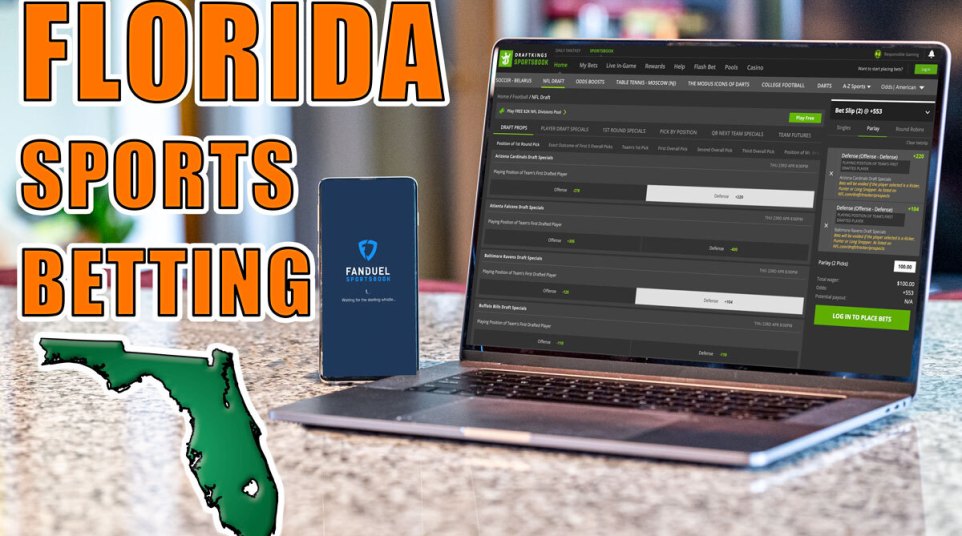
Florida's special session on gaming and sports betting begins today
Florida’s sports betting fate will be decided this week as state lawmakers take the first step towards approving a new 30-year gaming compact with the Seminole Tribe.
Lawmakers will meet today to discuss the groundbreaking gaming compact with the Seminole Tribe that includes sports betting. Discussions are expected to continue through Wednesday.
Lawmakers will be voting on whether or not to approve the gaming compact agreed to by Gov. Ron DeSantis and the Seminole Tribe last month. The compact is estimated to bring in nearly $6 billion to the Sunshine State over the next 30 years and will officially legalize sports betting for Florida gamblers. The deal is estimated to provide $2.5 billion to the state in the first 5 years alone, with annual payments of at least $500 million. In exchange for the payments, Florida agreed to cede control of sports betting to the Seminole Tribe.
The legislators will also be drafting secondary bills to determine how sports betting will work and be implemented in the state.
Is the Florida online sports betting deal legally possible?
There are still several questions about the plan that need answers. With so much potential revenue and the future of sports betting at stake, it’s important to understand the uphill battle the gaming compact may face before becoming a reality for Florida.
The compact legalizes online and retail sports betting for Florida residents 21 years of age or older. All sports wagering will be completed exclusively through Seminole Tribe controlled sportsbooks, or qualified parimutuel permitholders to offer sports betting at their facilities. The gaming compact requires the Seminole Tribe to compensate the partnered parimutuels with an amount no less than 60% of the difference between the net win earned by the tribe on patrons who access their wagering platform through the parimutuels and Tribe expenses related.
The biggest point of contention for online sports betting will be the issue of where bets are placed in the eyes of the law. Online sports betting servers will be housed on tribal property and the authors of the compact believe that any bet placed in the state will be deemed to take place at the location of the servers. This logic has been used in states such as New Jersey and Michigan, where servers are located in casinos.
In a special legislation FAQ section, the state believes there is precedent for this type of arrangement with the tribe:
The 2021 Gaming Compact with the Seminole Tribe and the proposed legislation to implement and approve the 2021 Gaming Compact specify that mobile sports betting is deemed at all times to be exclusively conducted by the Seminole Tribe where wagers are received by servers and devices at the Seminole Tribe’s facilities on Indian lands.
This is not a new concept in terms of mobile sports wagering, and IGRA allows such jurisdictional arrangements.
In 2016, a binding arbitration certified in federal court between the State of Oklahoma and the Iowa Tribe of Oklahoma determined the use of the Internet to play properly authorized covered games as agreed by the parties does not violate IGRA.
Despite the state’s optimism that this will be allowed under the Indian Gaming Regulatory Act (IGRA), a similar strategy was struck down in 2014 by the U.S. Court of Appeals for the Ninth Circuit. The Court of Appeals ruled against an online Tribal bingo casino in San Diego that argued the location of its users bets were in the physical location of its gaming servers, similar to what Florida is claiming with its gaming compact.
If Florida faces substantial legal battles for online sports betting, the easiest solution may be to strip the compact of online sports betting entirely. The tribe would still have exclusive sports betting rights with brick-and-mortar sportsbooks in the state.
Amendment 3 concerns for sports betting
The state will also likely have to deal with opponents citing the legality of the deal in the eyes of a voter approved 2018 constitutional amendment (Amendment 3) that requires any new casino gambling laws to be approved by voters. Supporters argue that “sports betting” is not mentioned in the constitutional amendment and was not a common game offered in the 2018 amendment, so it should not be included moving forward.
This amendment ensures that Florida voters shall have the exclusive right to decide whether to authorize casino gambling by requiring that in order for casino gambling to be authorized under Florida law, it must be approved by Florida voters pursuant to Article XI, Section 3 of the Florida Constitution.
If a vote was necessary it likely wouldn’t take place until 2022, which would mean sports betting wouldn’t be legalized until 2023 at the earliest if voters upheld the gaming compact.
Sports betting is the prize
If the compact is approved during the special session and faces no legal challenges in the coming weeks (which seems unlikely), than sports betting and expanded gaming options at Seminole Tribe casinos would be the prize. Online sports betting with Seminole Tribe mobile platforms would see a 13.75% state-imposed tax on net wins. To encourage the tribe to partner with parimutuels to offer sports betting, the state would increase the 13.75% tax rate to 15.75% if at least three parimutuels partnerships are not made within three months of the signing of the compact.
The tax rate on net wins for the Tribe from parimutuel based wagers will be set at 10%.
Retails sportsbook would also be allowed under the gaming compact, which opens the possibility of retail sportsbooks at professional sports arenas and stadium.
In addition to sports betting, the gaming compact will allow the Seminole Tribe to add up to three new casinos on existing tribal property. Additionally, the Seminole Tribe will not stand in the way of legislation to allow Jeffrey Soffer to transfer his casino license to the Fontainebleau Hotel on Miami Beach.
